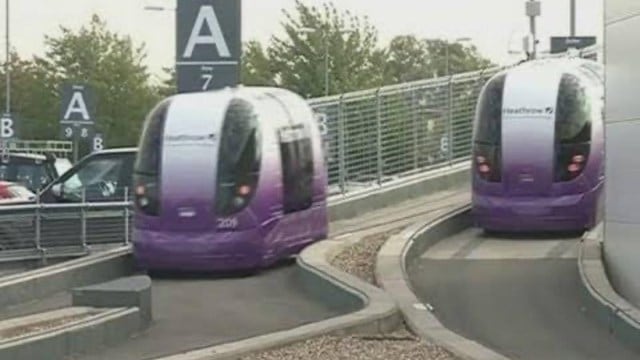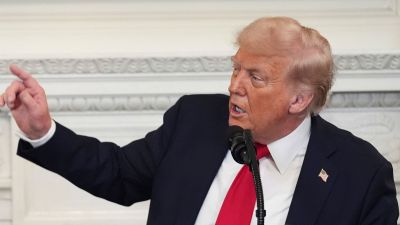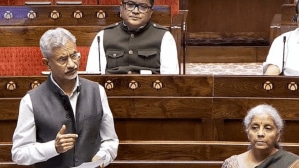MMRDA gives nod for pod taxi project in BKC; will have 38 stations along 8.8km network
Sai Green Mobility will be responsible for the design, engineering, development, construction, testing, commissioning, operation and maintenance of the pod taxi system.
 Surveys indicated that about 70 per cent of auto users and 36 per cent of bus users are willing to pay Rs 21 per km for the pod taxi service. (Representational image)
Surveys indicated that about 70 per cent of auto users and 36 per cent of bus users are willing to pay Rs 21 per km for the pod taxi service. (Representational image)The Mumbai Metropolitan Region Development Authority (MMRDA) has given the nod to the pod taxi project in Bandra Kurla Complex (BKC) by appointing Sai Green Mobility as the concessionaire for the initiative. This decision was taken during the 282nd executive committee meeting of MMRDA, chaired by state chief secretary, held on Thursday.
Sai Green Mobility will be responsible for the design, engineering, development, construction, testing, commissioning, operation and maintenance of the pod taxi system. The firm has partnered with M/s Ultra PRT, a technology provider with an established track record, including the operational pod taxi system at Heathrow Airport in London.
The pod taxi network will cover 8.80 km in Bandra Kurla Complex, with 38 stations along the route. The pods will be 3.5 metres long, 1.47 metres wide, and 1.8 metres tall, with a maximum speed of 40 kmph and a capacity of about six passengers per pod. The project depot will be situated within Bandra-Kurla Complex.
As per MMRDA, the pod taxi project is poised to transform last-mile connectivity within BKC, catering to the needs of 4,00,000 to 6,00,000 commuters who travel daily to and from the business district. With upcoming infrastructure developments like the bullet train, and new commercial buildings expected to increase footfall, it has become crucial to to establish an efficient last-mile connectivity. The fully autonomous pod taxi system, operating at frequencies of every 15 to 30 seconds, is well-suited to narrow roads linking BKC to Bandra and Kurla suburban stations.
The decision to adopt the pod taxi system follows a comprehensive techno-economic feasibility study (TEFS) commissioned by MMRDA, which examined various global technologies. Peer-reviewed by Tata Consulting Engineers, the study recommended the pod taxi system due to its suitability for the region’s topography and anticipated traffic growth.
Fares for the pod taxi service have been determined based on preference surveys conducted among current auto and bus users. Currently, commuters pay Rs 15.33 per km for metered auto rickshaws and Rs 30 to 40 per passenger for shared autos from Bandra or Kurla to BKC. Taxi fares are Rs18.67 per km, while ride-sharing services like Ola and Uber often charge between Rs 80 to 100 for the short 2-3 km trips from the stations to BKC.
Surveys indicated that about 70 per cent of auto users and 36 per cent of bus users are willing to pay Rs 21 per km for the pod taxi service. Consequently, the TEFS study has recommended a fare of Rs 21 per km, with an annual increase of 4 per cent to account for inflation and operational costs. The project, estimated at about Rs 1,016.34 crore, will be constructed over three years, with the operator managing it for a period of 30 years. The model includes provisions for a fixed concession fee and revenue sharing with MMRDA.
“This project is a significant step towards enhancing urban mobility in BKC that is one of Mumbai’s busiest business districts. The pod taxi system will not only improve last-mile connectivity but also reduce congestion and offer a modern, efficient mode of transportation to daily commuters,” Dr Sanjay Mukherjee, commissioner of MMRDA said.












